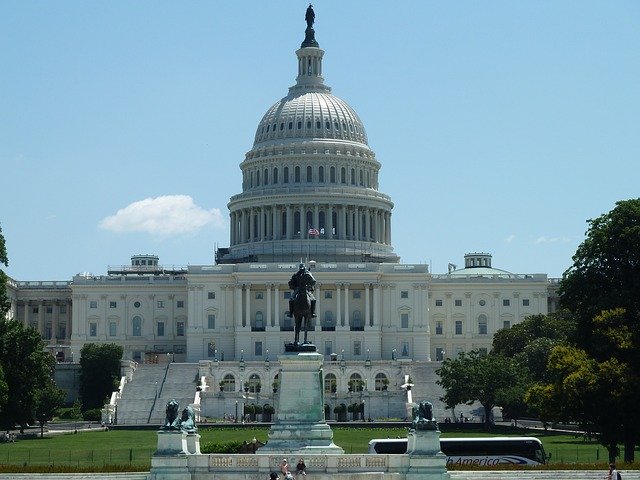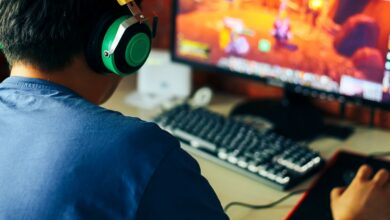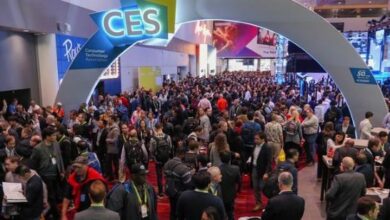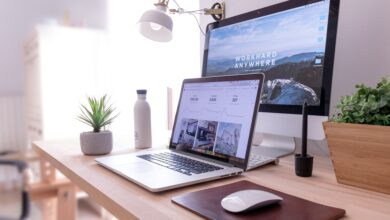Big Tech CEO’s on Capitol Hill: Highlights from their testimonies

Wednesday, July 29 marked the beginning of the latest round of hearings between lawmakers and the heads of four tech giants, Facebook, Amazon, Google, and Apple. The highly anticipated hearing was pushed back because of the death of Georgia Representative John Lewis, and the extra wait still led to a day full of notable words. These tech titans conducted this session over videoconferencing software, which made for an even more eventful afternoon. This was Silicon Valley’s day to be at the front of the news and at times it played out like the HBO show of the same name. Below is a chronological look at some of the major moments of the first full day of the hearing.
Opening Remarks
The day featured a wide assortment of speakers. At the start of the hearing, a few initial statements were made. Representative David Cicilline, the chairman of the House panel on antitrust labeled the four companies “emperors of the online economy” while he also pointed out that the pandemic could help to make them even more dominant.
Jim Sensenbrenner responded back by stating that being a large company like these is not always a bad thing and that American was built upon rewarding success. Sensenbrenner then made the point that the important thing is what these companies do with this power to help the American consumer.
Following Nadler’s remarks, there were a few technical glitches with the software being used for the video conference. Amusingly or perhaps ironically enough, this was one of a few throughout the day that occurred while interviewing the best minds in American tech today.
Representative Jim Jordan (R-Ohio) also spoke and immediately accused the tech giants of being “out to get conservatives”. These companies have denied this accusation in the past.
After that, the CEOs were sworn in via the videoconferencing software and the hearing began.
Opening Statements from the Tech Giants
Amazon Founder, Jeff Bezos made his opening statement with a personal story about his parents investing their life savings in Amazon. He also mentioned that the marketplace in online retails is crowded, mentioning companies including Costco, Target and Walmart. He concluded his statement by stating that Amazon should be scrutinized because of their large size.
Tim Cook, Apple’s CEO, spoke next and argued that Apple has been subject to strong competition in the smartphone sector. Cook also added that the company does not dominate any one market that they are doing business.
Founder of Facebook Mark Zuckerberg was next in line and he directly referenced a number of the company’s competitors, including Apple’s iMessage, video service TikTok, and YouTube. He also mentioned Facebook’s ongoing competition in the advertising sector with Amazon and Google. Zuckerberg has often been lampooned for his simplistic responses and nonchalant demeanor during previous hearings, and he has become accustomed to this by now.
Google CEO Sundar Pichai discussed his upbringing and how it led to him building Google Chrome. He pointed out that there was enough competition to drive down online advertising 40 percent in recent years, while Android is an open platform helping third-parties everywhere.
One common theme that all of the tech CEOs seemed to play was the patriotic card by advocating that their company was a great example of American values and were helping the country grow stronger in the tech space.
The Back and Forth Begins
From there, the questions began from the lawmakers. Chairman Cicilline showed documents from Google that were taking aim at competitors like Yelp for getting too much traffic. Pinchai played ignorant to the matter saying he was not familiar with the allegations.
Facebook CEO Mark Zuckerberg was next on the hot seat, as he was asked if Instagram should be separated from Facebook. Zuckerberg maintained that Instagram has grown quite immensely since the tech giant purchased it all the way back in 2012 for $1 billion. He reasoned that the success of Instagram was “not a guarantee”, and that the Federal Trade Commission did not challenge the deal at the time. This doesn’t mean that the same verdict holds true today, though.
The discussion remained on Facebook and Instagram as an email was brought forward by the House Judiciary Committee that featured remarks from Zuckerberg who said Instagram may be “very disruptive” for the company. This showed Facebook did view Instagram as a threat which Zuckerberg did not deny, only pointing out that the deal still was allowed to go through.
Later on, another email sent by Zuckerberg was scrutinized. The email stated, “Thanks. One reason people underestimate the importance of watching Google is that we can likely always just buy any competitive startups, but it’ll be a while before we can buy Google.” Zuckerberg denied remembering writing the email but quipped it sounded like a joke.
The Instagram purchase came up once again when Zuckerberg was accused of bullying Instagram into the acquisition. Zuckerberg denied that whatever he sent to Instagram should not have been taken as a threat, just a statement about the two companies being competitors.
It took nearly two hours for Amazon CEO Jeff Bezos to receive his first question.
It came from Representative Pramila Jayapal who asked Bezos about whether or not Amazon used third-party data to its own advantage, which might be considered a violation of privacy. Jayspal referenced a statement made by an anonymous employee of the company that argued that there was a policy against using the data but it was not enforced. Bezos simply stated that there was indeed a policy but offered no guarantee that it had never been violated. Bezos concluded in stating that his company would be looking into these reports about policy violations, thus a possible admission by omission.
Later on, the distinction between taking data from individual sellers and “aggregate data” was made. Employers are not in violation of any policies from using this aggregate data. When pushed on what “aggregate data” meant, Bezos conceded it could mean the term applies to as little as two sellers.
Bezos was subsequently asked about the low prices on his devices. The company was accused of putting the prices of the Echo, which uses the very popular Alexa service, below cost making it hard for competitors to survive. Bezos did admit that these devices were often sold cheaply, especially if they were on sale on their website.
Bezos was also asked about the matter of counterfeit goods being sold on his platform, such as medicine that didn’t actually work or products that were dangerous to kids. He answered by maintaining that Amazon works hard to prevent things like this from happening and it invests hundreds of millions of dollars into ways to prevent it.
Amazon was accused of another shady business activity during the session saying that it had used knockoff products of its own to force third-party sellers to cave to their own demands and pay for ads. Bezos answered by promising that he would look into the accusations and that he would rather “Lose a sale than lose a customer”.
Zuckerberg was also asked about how it determines what companies have access to its API. The exchange cited a statement from a Facebook employee that was in favor of removing competitor Pinterest but opposed to removing video streaming service Netflix. Zuckerberg responded by saying that the company did have a policy that restricted its competitors from using its platform, and this included Pinterest. This statement does seem to indicate to an extent that Facebook is fine with discriminating against its competitors.
Zuckerberg was again grilled about a video about the coronavirus that had misleading facts that went viral on his company’s platform. The video was taken down but not before it received millions of views. Zuckerberg defended his company’s record on COVID information specifically and its handling of taking down false content. This has of course been a major concern for the social networking giant for some time now as they have had to remove many posts with false information in recent years.
Facebook again received the heavy criticism when it was questioned about Onavo, an app it purchased thats main job was to get information on future competitors. To some, this purchase was considered another way that the company would figure out who it would have to buy out or enact other measures. Zuckerberg responded by stating that the acquisition was only to improve consumer research to better understand customers.
All four tech CEOs also addressed the issue of “cancel culture” at one point after being urged by Rep. Jordan. Each of the four tech leaders seemed to be pretty in step in championing freedom of expression in their company and America in general.
Another important question near the end of the session was about whether or not Amazon shipped any non-essential items during the pandemic. Bezos responded by saying, “I don’t know the answer to that” and that he was sure that the company did not do everything perfectly in the unprecedented madness at the onset of the virus.
The hearing ends for the day
Chairman Cicilline ended the day’s hearing by likening the tech CEOs to John Rockefeller and Andrew Carnegie, two of the richest men in the world in the America of yesteryear. He finished by stating that these companies are indeed monopolies that need to be broken up, properly regulated, and held accountable by the U.S. government.
Takeaways
Each CEO faced a number of questions that were relevant to their large companies. The majority of the questions were directed at both Zuckerberg and Bezos, while topics like Google’s monopoly in the search engine sector and Apple’s dominance in the App Store were ignored.
The House Subcommittee did however ask a lot of important questions that should have some kind of follow up in the coming months. The threat of an overpowering monopoly will inevitably lead the government to enacting a few safegaurds to curb the dominance from any of these four tech giants.





